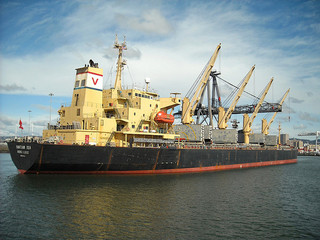Unmanned Ships: The Latest in A Long Series of Plans to Replace Human Drivers and Operators With Computers

Amazon made headlines on Black Friday 2013 with an announcement that the online retail giant is developing flying drones to deliver packages. The U.S. Army and some interests in Europe are in the process of developing driverless trucks. Now Rolls Royce makes it known that they’ve been developing unmanned cargo and container ships, and say the ships will be ready for deployment as early as next year.
This article is for Premium Members only. Please login below to read the rest of this article.
Not a Premium Member yet? Become one today.
[login_form redirect=’https://www.procurementbulletin.com/unmanned-ships-the-latest-in-a-long-series-of-plans-to-replace-human-drivers-and-operators-with-computers’]
[show_to accesslevel=’Premium Members’]
But before drivers, ship crews, and cargo pilots line up in unemployment offices, there are some clear obstacles to these plans. First, most of these machine-driven delivery systems are not yet legal, especially in the United States. Labor unions believe that even if the technology is developed to allow for these systems, that no machine can ever replace the thinking human being when it comes to making impromptu decisions based on current conditions. Finally, there are a number of environmental concerns with these operatorless machines that might prevent these technologies from gaining approval anytime soon.
In the case of Rolls Royce’s operatorless ships, the conditions at sea are too perilous and unpredictable to put in the hands of machines that are incapable of reason, explains Dave Heindel of the International Transport Workers’ Federation. Computers “cannot and will never replace the eyes, ears and thought processes of professional seafarers.” Heindel told Bloomberg. “The human element is one of the first lines of defense in the event of machinery failure and the kind of unexpected and sudden changes of conditions in which the world’s seas specialize. The dangers posed to the environment by unmanned vessels are too easily imagined.”
Supporters of the unmanned vessels say that eliminating crew members would reduce operating costs by as much as $3,000 per day or 45 percent of total costs. The lack of a crew and no need for a deck would increase the capacity of ships, leaving more room for paying cargo. Additionally, without the crew the ship would start at five percent less weight, which would reduce fuel consumption by 12 to 15 percent, according to spokespersons for Rolls Royce.
Tor Svensen, CEO of maritime for DNV GL does not believe the cost savings would be enough to justify the additional safety, environmental, and other issues associated with operatorless ships. [/show_to]







